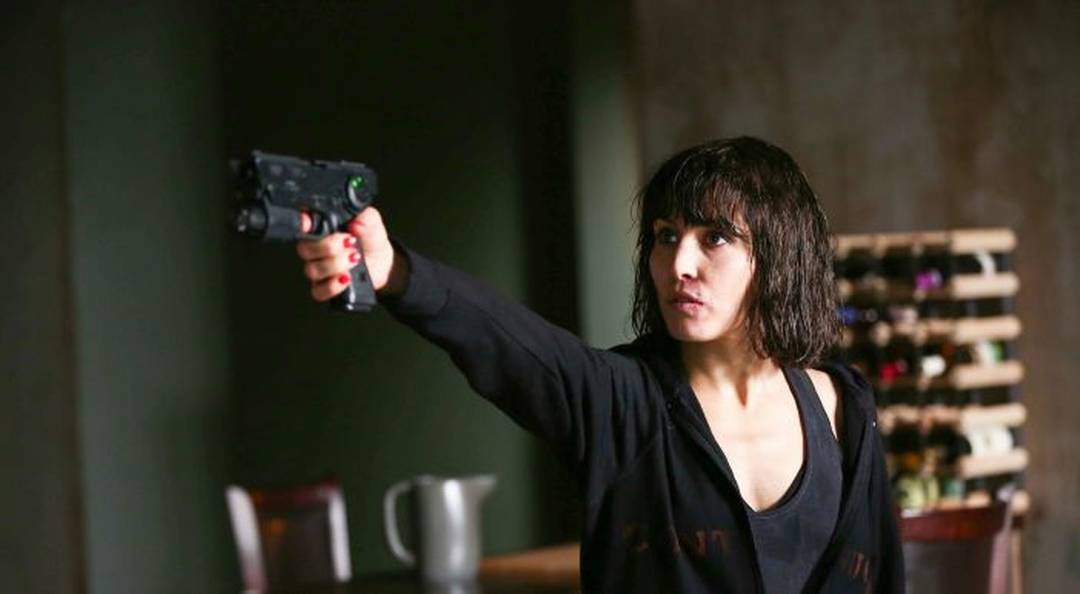★★★½
“Seven Noomis for the price of one!”
In the future, overpopulation becomes such a problem that strict limits are placed on children per family. You are only allowed one, with any others being taken by the authorities and put into “cryosleep”, so they will no longer consume resources until the situation has been addressed. After a woman secretly gives birth to septuplets, their grandfather, Terrence Settman (Dafoe), brings them up, rigidly schooling their actions so they remain under the radar. Each gets to go out on the day of the week corresponding to their name e.g. Monday on Monday, etc. On their return, they share with their siblings the events of the day, so the illusion can be sustained. 30 years later, with their grandfather gone, the seven women have evaded capture, though tensions between the different personalities are growing. Then, one evening, Monday simply doesn’t come back. The following day, neither does Tuesday. The remaining sisters have to try and figure out what’s going on, without exposing themselves.

There are strong hints of Orphan Black here, the TV series in which Tatiana Maslany played multiple clones, with distinct personalities, who end up working together to uncover a conspiracy. That ran for five seasons, truly flogging a dead horse into the ground, and the concept works a good deal better at the two hours for which this runs. Though even here, the third quarter does somewhat run out of steam. The main pleasure is the seven different versions of Rapace – and, indeed, the seven mini versions seen in flashblack, played by Read. Watching them bickering around the dinner table is a marvel on both technical and acting levels. Despite limited screen time, Rapace imbues them with distinguishing characteristics that mean you can tell the players without a scorecard. Though, again, the third quarter gets rather murky in this area, especially when two versions start rolling around, brawling with each other.
Wirkola is best known for Hansel and Gretel: Witch Hunters (a film which, like the Resident Evil series, performed much better overseas), and has a similarly stylish grasp of the action here. Though not all the seven sisters are action-oriented, some of them most definitely are. The highlights are a chase through the streets of the city, and a misguided attempt by the authorities to storm the apartment where the sisters are embedded. It does not go well. These sequences likely work rather better than the plot. As well as my doubts a subterfuge like this could be sustained for three decades, despite Settman’s undeniable commitment to it, I must confess I’m with Nicolette Cayman (Glenn Close), head of the Child Allocation Bureau. She points out the grandfather’s actions are thoroughly selfish: he feels that rules for the necessary good of all, should only apply to other people, not his descendants. The story likely also needs a better antagonist: someone against whom the Noomis can directly battle. Cayman is largely absent and operating at just too much of a distance to qualify.
There’s still more than enough here to appreciate, with a well-crafted dystopian world which seems not implausible – see China’s “one child policy,” for instance. But it’s really Rapace’s show, and the actress builds on the intensity shown in the Millennium Trilogy. She seems to have both a fondness and a talent for action: Noomi likely has as good a claim to being the current Queen of European Action Heroines as anyone.
Dir: Tommy Wirkola
Star: Noomi Rapace, Clara Read, Marwan Kenzari, Willem Dafoe




